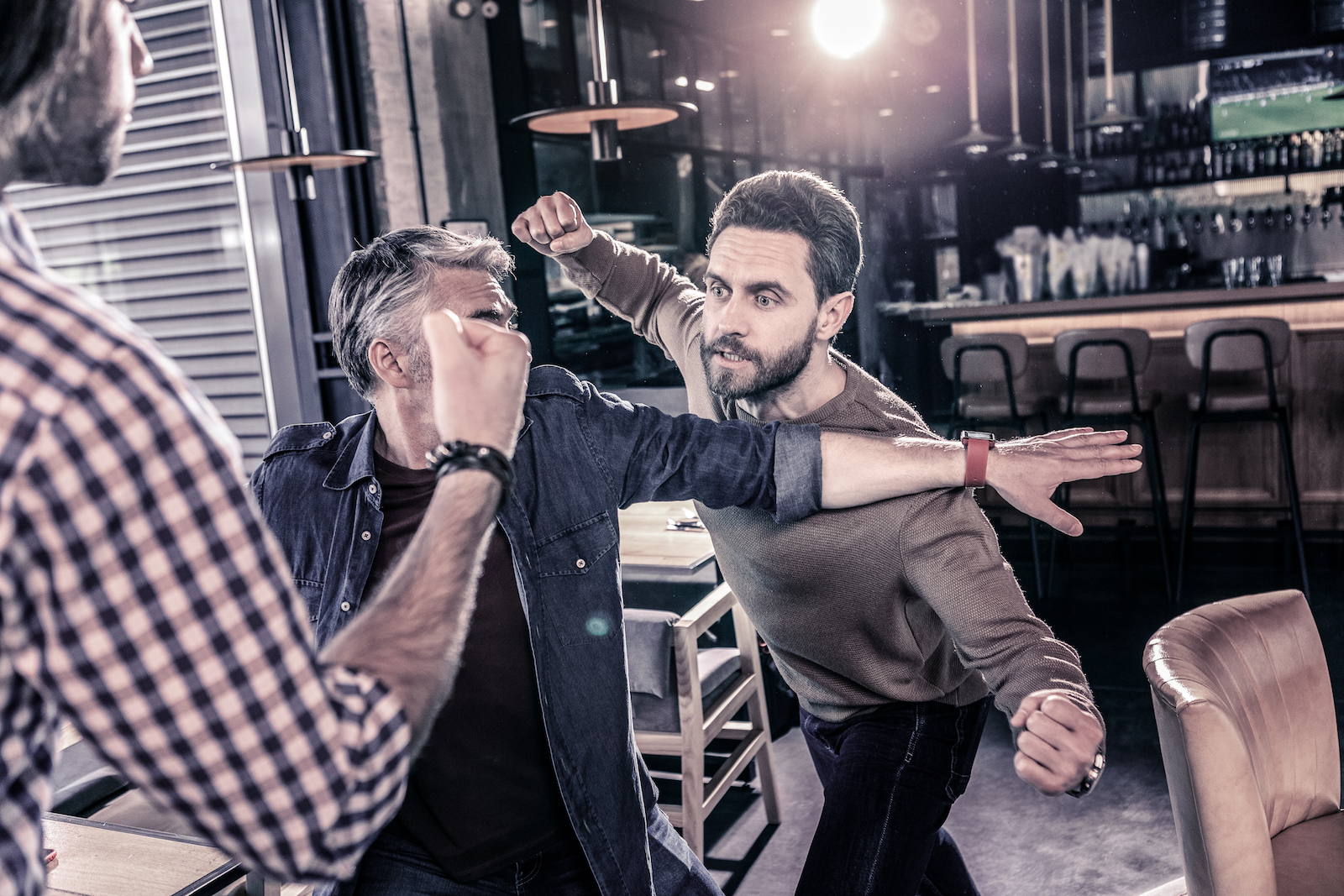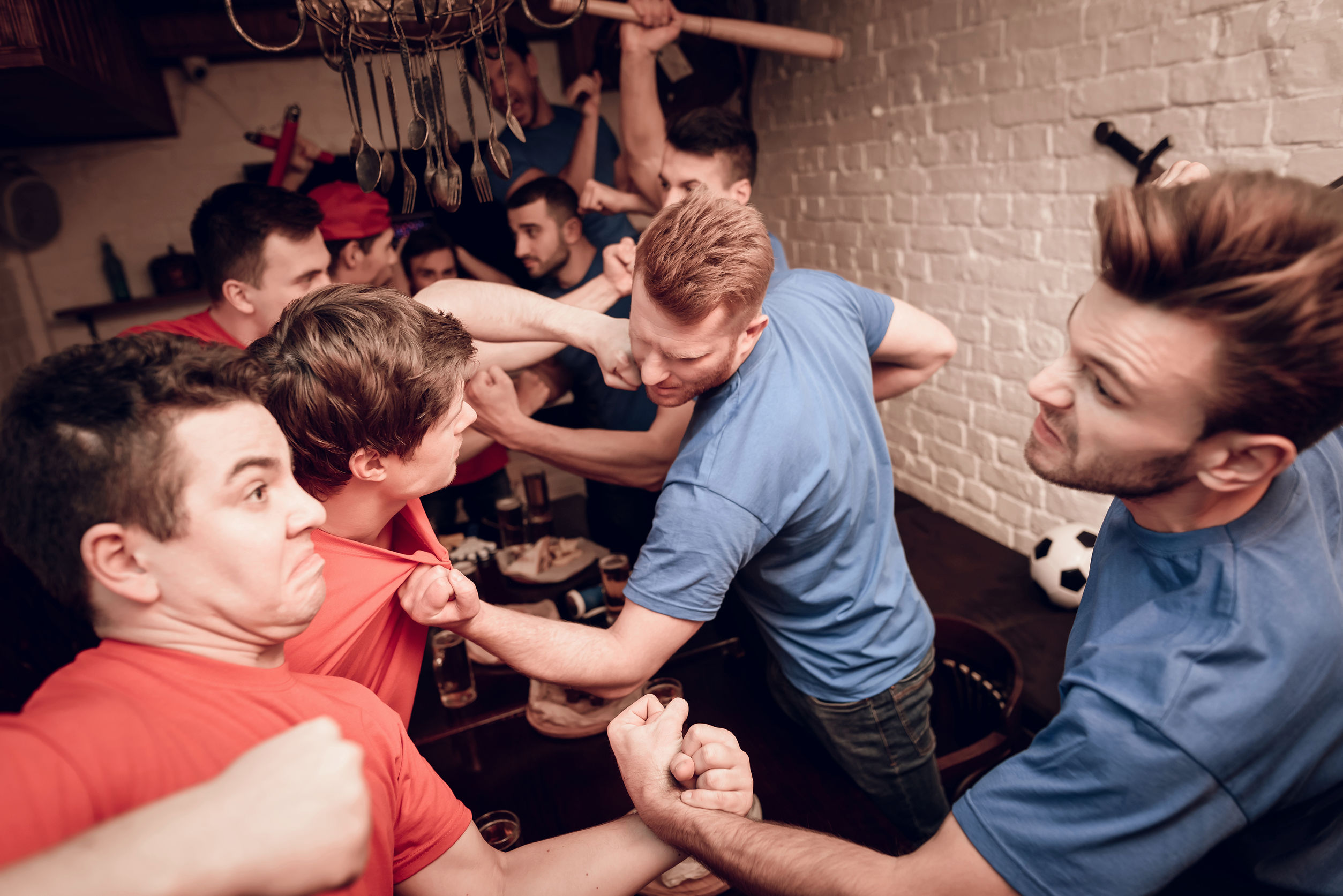Many people who overindulge in alcohol, abuse alcohol or suffer from alcoholism feel it’s an excuse for poor behavior. But that reasoning doesn’t resolve the effects it has on those suffering the consequences of the behavior, especially if it’s becoming a pattern. Most people, including those acting out, are curious about why it happens.
Why do drunk people actively want to fight with their loved ones, say hurtful things, and cause problems when in an inebriated state? The first thing to understand is it’s not the alcohol that’s forcing someone to be angry or lash out. The liquor reacts in the brain, lowering a person’s inhibitions and restricting judgment.
That means the censorship you would typically place on yourself when sober is ignored in favor of releasing thoughts and feelings you would usually keep private. Alcohol removes the filters, with everything coming out in a much more dramatic telling than if sober and communicating constructively. That automatically creates a volatile circumstance.
Alcohol will change a person’s behavior and personality, and it will do so even in moments when you’re sober. These changes contribute to the reasons drunk people become angry and aggressive. Let’s look at the way the brain is affected by alcohol and how this can lead to fighting and aggressive reactions from the individual consuming the liquor.
Table of Contents
ToggleHow Alcohol Leads To Fighting And Aggressive Behavior
Alcohol is naturally a depressant that interacts in the brain with its “GABA receptors.” This is a neurotransmitter responsible for euphoria and pleasure. Liquor alters the response leading to an increased sense of confidence, an attraction for individuals you usually wouldn’t be drawn to, and relaxation in social situations.
Your inhibitions are decreased, and at the same time, you suffer from a lack of coordination, causing clumsy albeit bold and intentional movements. Consider these risks for becoming drunk and reacting aggressively and ready to fight.
What Makes Someone More At Risk For Drunk Fighting And Aggression?

How do you know if you’re susceptible to angry outbursts or fighting when becoming drunk? Everyone is capable, but some are more so. Follow to learn what increases the risks.
1. Alcohol increases aggression in women and men
Gender can play a role in the aggressive effects of alcohol. Studies indicate that the impact can be seen more in men. That isn’t to imply that women cannot be belligerent when drinking alcohol. Some women become abusive when consuming liquor. Some are as aggressive as to strike a loved one, remark with hurtful comments, and generally cause turmoil.
This is not okay. Unfortunately, many men feel ashamed to reveal an abusive situation with a partner, instead brushing it off as a simple matter based on alcohol abuse. In fact, they should be reaching out for help. Regardless of the fact you’re the male in the relationship doesn’t mean you need to withstand unhealthy behavior.
2. Binge drinking can lead to anger and aggression faster than those consuming standard amounts of liquor in a slow pattern
The way alcohol affects personality, it would make sense that the more significant quantities you have, the more likely you’ll be
- Aggressive
- Volatile and emotional
- Impulsive
- Uninhibited
Heavy alcohol abuse will more readily create cognitive distortion, leading to skewed interpretation and perception of social cues. Your thought process will be distorted with a greater misunderstanding of the behavior of those around you or their intention. When a situation is calm and generic, you will see hostility setting you off into an aggressive interaction.
3. Unresolved emotional conflict can lead to drunken outbursts
Insecurity is a significant emotional conflict along with unresolved traumas or conflicts and unexpressed feelings or emotions leading to poor communication when drunk, saying hurtful things. When not done in person, drunk people will often send nasty texts or messages.
4. Following peers or social considerations
Peer pressure generally has a role, with many people following what their friends do. If these individuals drink heavily and become belligerent, you will also likely do so. When close friends become riled up during a drinking session, brewing for a fight, you’ll be in it to win it.
When surrounded by an atmosphere with binge drinking being the norm and fighting being overlooked, you’ll follow that same pattern of displaying anger and aggression when heavy drinking and fighting with anyone who will participate.
5. Mental unwellness can be associated with abusing alcohol
Often mental unwellness, including borderline personality disorder, bipolar disorder, anxiety disorders, and depression, impair the ability to effectively regulate emotions, a primary risk when you’re known as an angry drunk.
People with mental health disorders will commonly use alcohol as a substance to self-medicate for symptom relief. Problems arise with this solution since alcohol exacerbates the symptoms. The more prominent an individual’s mental health symptoms become, they tend to drink more heavily with the notion it will offer more significant relief.
6. Some key personality traits have the potential to make you more alcoholically aggressive
Everyone has a unique personality, but specific traits will make an individual more aggressive and angry when consuming liquor. When someone is already irritable or angry, they are likely prone to anger and fighting when drinking. Becoming drunk will exacerbate this trait in you. If you have any filters, these will be let go of.
Another trait is “hostile attribution bias,” which interprets a situation or another person’s behavior as threatening or hostile instead of being objective. Your immediate response is to perceive scenarios as negative and then overreact in those circumstances.
Conclusion
Making excuses or apologizing for fighting or disrespecting another person, a close friend, or a loved one, using drunkenness as your basis, is insufficient. When consuming liquor causes you to lash out with regrettable comments, that’s a red flag that the drinking should stop. If you don’t, it sends the message that drinking takes precedence over those you love.
You know how it will make you behave, yet you indulge anyway. That means you will continue your abusive ways, or the other individual(s) will walk away from you to find healthier friendships.

I am a passionate beer connoisseur with a deep appreciation for the art and science of brewing. With years of experience tasting and evaluating various beers, I love to share my opinions and insights with others and I am always eager to engage in lively discussions about my favorite beverage.
















